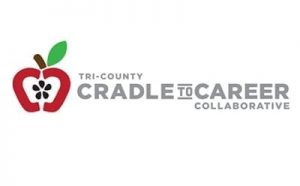Regional Education Report Finds Gaps in Educational Outcomes
March 7, 2016Report online at www.TriCountyCradleToCareer.org
The Tri-County Cradle to Career Collaborative (TCCC) released its Regional Education Report: Chapter Two. The report provides a comprehensive overview of educational outcomes for public school students in the tri-county area (Berkeley, Charleston and Dorchester Counties) at key assessment points ranging across the continuum from kindergarten readiness to postsecondary completion.
“The future of our region lies in our ability to provide EVERY child the opportunity to succeed and contribute to our economy,” said TCCC Board Chair and CEO of The InterTech Group Anita Zucker. “Too many kids are not graduating high school with the tools they need to succeed in the workforce orto successfully continue their education in college, and that’s often a result of problems that begin in infancy. If our region is going to continue to compete for jobs, we’ve got to improve the education system to create the highly skilled workers employers demand.”
Regional data on kindergarten readiness, reading and math proficiency scores for third and eighth grades, high school graduation rates, and postsecondary enrollment and completion are provided in the report. Key findings include:
- Only 38% of third graders and 53% of 8th graders meet reading proficiency standards for their grade level.
- Two in five third graders and one in three 8th graders do not meet proficiency standards in math.
- Although the on-time high school graduation rate has risen steadily, two of three students are not college ready and one of three are not workforce ready.
The report also provides evidence of the persistent achievement gap that separates the academic performance of Black students from their White peers.
- 8-in-10 Black students are not proficient in 3rd grade reading, compared to 5-in-10 White students.
- 9-in-10 Black students are not proficient in 8th grade math, compared to 5-in-10 White students.
“It is apparent from the data that the tri-county region’s system of public education is failing to serve low income, mostly Black and Hispanic children and that our White students aren’t well served by this system either.” According to TCCC CEO John Read, “Systems failure is not anyone’s fault but changing the system is everyone’s responsibility.”
In addition to presenting data on student performance, the report outlines several factors which hinder student success, including inequities in allocation of resources, toxic stress, and the inability of education partners and providers to support the success of the whole child as integral to teaching and learning. The report outlines some of the actions taken by TCCC to address these issues and opportunities for businesses, families and other education partners to get involved.
“As we continue to learn about the challenges faced by students, families, teachers and other education partners, our path forward has become clear,” said Read. “From development of a strong system of support for under-resourced children to improving upon collaborations between schools and outside support providers, there are several areas where we can focus our efforts to drive positive change.”
This second report serves as an update on last year’s Regional Education Report and provides direction for future efforts by TCCC and its partners, including the public school districts and non-profit institutions of higher education serving the tri-county region, families, businesses, non-profit and civic organizations, philanthropists, government agencies, elected officials and community volunteers.
About the Tri-County Cradle to Career Collaborative
The Tri-County Cradle to Career Collaborative (TCCC) is a community-wide movement in Berkeley, Charleston, and Dorchester Counties, South Carolina focused on improving the quality of life of its citizens and its workforce through education by collectively aligning resources and working toward common goals. Using data and focused community collaboration across a continuum from “cradle-to-career,” TCCC works to build and implement strategies that will facilitate widespread systemic change, with the ultimate goal of increased student success and economic prosperity for all.














